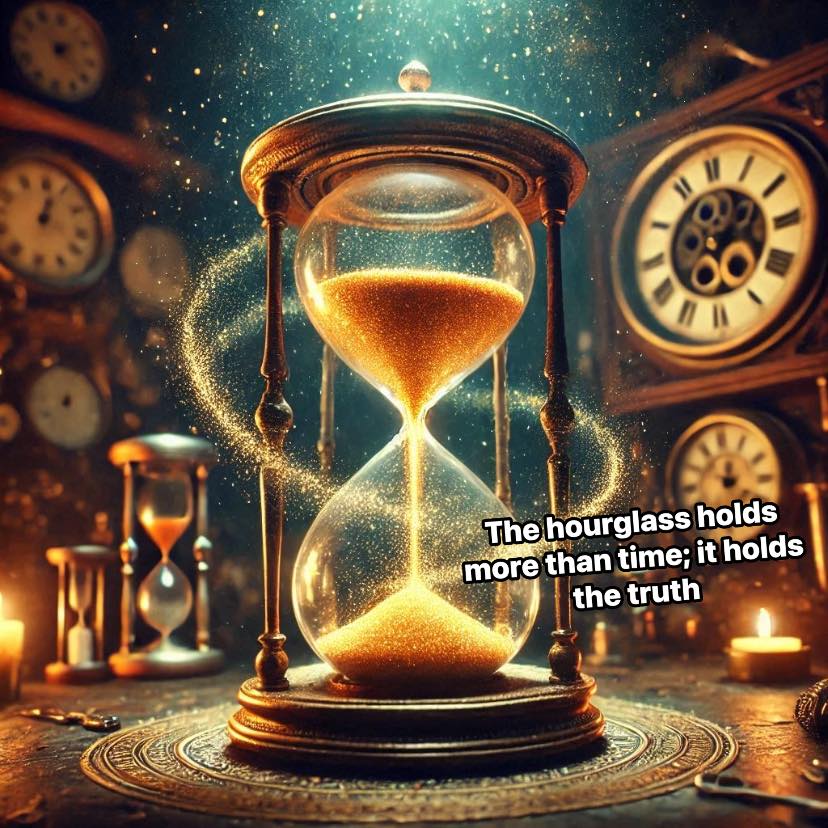
In a quiet town nestled between misty mountains, there lived an elderly watchmaker named Idrees. His shop, “The Timeless Hour,” was famous not only for its intricate timepieces but also for an antique hourglass that stood in the center of the room. This was no ordinary hourglass; the townsfolk whispered that its sands held the essence of life itself.
Idrees was no ordinary watchmaker. He had lived through wars, famines, and plagues, watching friends and enemies alike fall to the inevitability of death. Yet, he noticed a strange pattern: even as people mourned the loss of their loved ones, their own hearts remained untouched by transformation. The greedy stayed greedy, the cruel remained cruel, the wicked remained the wicked, and the selfish clung to their selfishness.
One fateful day, a young woman named Mara entered his shop. Her eyes, sharp and defiant, betrayed a heart weighed down by bitterness. She was known throughout the town as a cunning merchant who manipulated others for her gain. She had come to Idrees not for a watch, but for the fabled hourglass.
“I’ve heard it can grant visions,” she said, her voice a mixture of skepticism and desire.
Idrees studied her for a moment, then nodded. “It does. But it doesn’t show wealth or power. It shows the truth.”

Intrigued, Mara agreed to look into the hourglass. As she gazed at the swirling sands, her surroundings dissolved, and she found herself in a barren landscape. She saw the shadows of people she had wronged—employees she had underpaid, rivals she had sabotaged, and even her own family, whom she had neglected. Each shadow whispered, “This is your legacy.”
Then, the vision shifted. She saw her own death—a cold, lonely room, with no one to mourn her passing. The realization struck her: though death was inevitable, the seeds of her actions would continue to grow long after she was gone.
She stumbled back, breaking her gaze from the hourglass. “Is this…my fate?” she asked, trembling.
Idrees spoke gently. “Death ends your existence, but it doesn’t erase your deeds. The thought of death should teach us to live better, to uproot the evil within us. Yet most people ignore it, thinking only of what they can take, not what they can leave behind.”
Mara left the shop that day, deeply shaken. Over time, she changed. She began treating her employees fairly, made amends with her family, and used her cunning to help others succeed rather than tearing them down. The town marveled at her transformation, but only Idrees knew the true reason.
Years later, when Idrees passed away, the townsfolk gathered in his shop to remember the wise old watchmaker. In his will, he left the hourglass to the town, with a single inscription:
“If death puts an end to our existence, let it put an end to our wickedness, too.”
The hourglass became a symbol, reminding everyone that though death was certain, life was their canvas, and every action was a stroke of paint that would define the picture they left behind.


